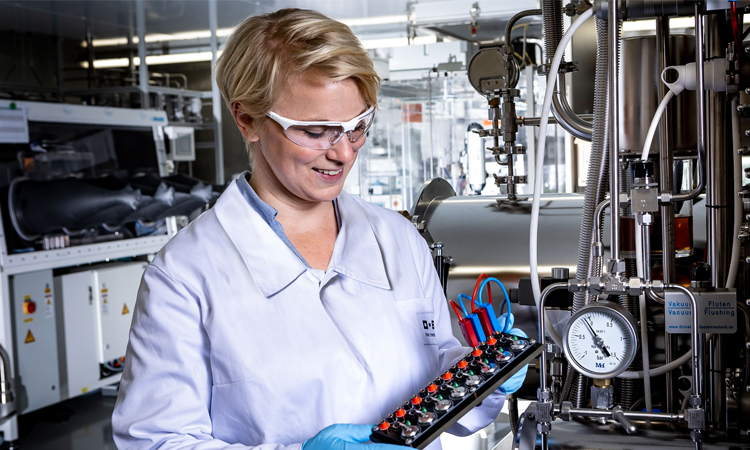In Focus: Global Trends and Growth Opportunities for BASF
It is important for us to understand which global trends will shape the future. On this basis, we can identify opportunities, align our strategies and operations, monitor risks and create value added for our stakeholders.
The transition to a climate-neutral society is the greatest challenge of the coming decades. Many of our products and technologies are key to this transformation. For example, we are developing innovative battery materials, lightweight materials, and additives for climate-smart mobility. Catalysts and other emission control technologies from BASF reduce emissions in many applications. Materials from BASF make buildings more energy efficient and generating power from wind and solar energy possible. We help farmers reduce carbon emissions with our integrated offering of seeds, crop protection and digital solutions. We are continuously expanding our portfolio of climate protection products. At the same time, we are working hard to significantly reduce the carbon footprint of our production and our products in our carbon management.
Population growth and rising prosperity will increase demand for food, household and personal care products, drugs, clothing and much more. At the same time, consumer behavior is changing. Sustainability aspects are playing an increasingly important role in our value chains. Our innovative solutions for agriculture enable higher yields from the same land area, contributing to a food supply that meets diverse economic, environmental and social requirements. We offer food and feed manufacturers and customers in the pharmaceutical, cosmetics, detergents and cleaners industries a product portfolio focused on sustainability, which we are continually expanding with bio-based and biodegradable solutions.
Growing resource scarcity means that resources and materials must be used responsibly. We develop and market innovative technologies and products in a wide variety of areas to keep recyclable materials in circulation for as long as possible. Going forward, we will align our business models, products and processes even more strongly with the circular economy. For example, we are driving forward the chemical recycling of plastics and improving mechanical recycling with new products and technologies. Other action areas include the use of renewable and recycled raw materials and the recovery of metals from spent batteries and catalytic converters.
Digitalization and connectivity offer many opportunities to optimize our processes: maintenance work can be planned in advance, innovation processes accelerated or logistics concepts and customer relationships improved. In addition, new business models are opening up, for example in agriculture or with products for the electronics and semiconductor industries.
In the emerging countries of Asia and South America, we have an innovation, production and sales base that has grown over several decades. We are strengthening this position with further investments.

